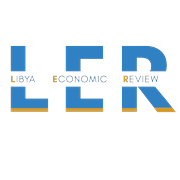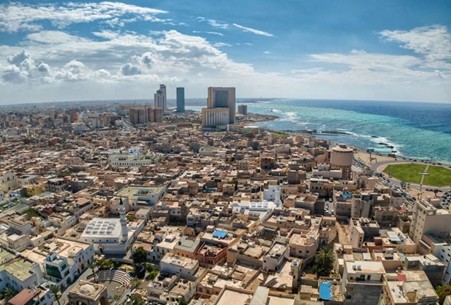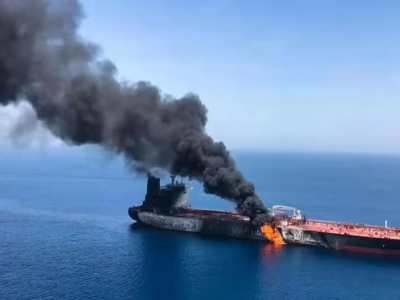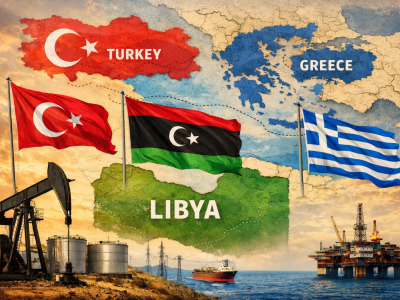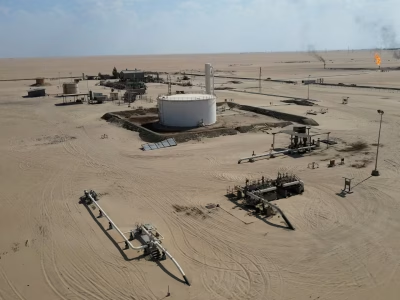Oil, Influence, and Fragile Alliances: Libya’s Strange Trade Relations Amid Conflict
In the chaos of post-revolution Libya, trade should be the least controversial topic. And yet, the country’s most vital economic lifeline – its international trade – is entangled in a web of foreign influence, political rivalry, and fragmented governance. Behind the flow of crude oil and manufactured goods lies a deeper, more complex story: one where nations play both merchant and meddler in Libya’s ongoing turmoil.
Libya’s Trade Map: Who Buys, Who Sells?
At the heart of Libya’s economy lies a single commodity: oil. Based on OEC data from 2023, crude petroleum made up the overwhelming majority of its $35.4 billion in exports, with nearly 90% of that bound for just a handful of countries. Italy ($7.96B), Germany ($5.16B), Spain ($3.08B), France ($2.64B), and China ($2.2B) were among the top buyers. The European Union accounts for more than half of Libya’s foreign trade, making it the country’s most important commercial bloc.
On the import side, Libya brings in everything from machinery to food and vehicles. China is Libya’s top import partner at $3.9 billion, followed closely by Turkey ($3.26B), Italy ($1.84B), UAE ($1.83B), and Egypt ($1.79B). These numbers show a clear dependency: Libya exports raw material wealth and imports essential infrastructure and consumer goods.
But these commercial ties don’t exist in a vacuum – they are deeply shaped by the fractured political landscape and the ambitions of foreign powers competing for influence.
One Country, Two Governments, Many Agendas
Libya has remained divided since 2014, with rival administrations – the UN-backed Government of National Unity (GNU) in Tripoli and the Libyan National Army (LNA) led by Khalifa Haftar in the east – each claiming legitimacy. This duality complicates everything from oil revenue distribution to foreign diplomacy.
Italy, strategically important due to its proximity, has long-standing colonial and economic interests in Libya, particularly in energy. Italian oil giant Eni maintains one of the most significant operations in the country. Rome has largely supported the GNU but maintains contact with Haftar’s side.
France has been accused of playing a double game. While officially backing the UN-led peace process, it provided support – and at times military aid and training – to Haftar. Paris has its eyes on counterterrorism and influence in North Africa, in contrast to Italy’s more pro-GNU stance.
The United States, after years of reduced involvement following the 2012 Benghazi attack and the subsequent civil war, continues to conduct business in the country. American oil firms have a long history of involvement in the Libyan market, with multinational giant ConocoPhillips generating $1.73B in revenue in 2023 alone. Washington has not committed heavily to either faction and maintains diplomatic engagement with both. In terms of foreign policy, the US seems most concerned with containing Russian influence, worrying that they’re exploiting the nations crisis.
Turkey is arguably the most openly partisan player. Ankara backed the Tripoli-based GNU with military equipment, drones, and even boots on the ground during the war. On the receiving end of the relationship, they secured maritime rights in the eastern Mediterranean by signing a deal to establish an exclusive economic zone (EEZ). This further solidified relations between the two countries, despite rustling the feathers of neighboring countries.
China plays a different game altogether. Preferring profit over politics, Beijing has positioned itself as a neutral investor. Chinese companies are involved in infrastructure and energy. While China hasn’t picked a side in the conflict, it does deal with whoever holds power in any given region, offering a rare channel of economic diplomacy.
Spain, though less vocal, remains tied to Libya through EU frameworks, oil imports, and security interests in the Mediterranean. Spanish energy firm Repsol – together with other European firms including Eni and BP – announced last year they’d be resuming oil exploration in the country after a decade-long hiatus.
Trade as a Tool for Peace – or Division?
Given the chaotic overlap of foreign interests and trade, the question arises: Can Libya’s economic ties actually help resolve the conflict?
In theory, yes. Economic interdependence could incentivize stability. For example, Libya and Turkey are discussing a free trade agreement, which could streamline investments and infrastructure projects in key sectors like construction and healthcare. Such agreements, if made inclusive across Libya’s political divide, could build trust and create shared economic stakes in peace.
Similarly, the European Union could push for a formal trade framework with Libya. Despite being its largest trade partner, the EU has no comprehensive trade agreement in place with Libya due to the ongoing conflict. A conditional trade deal – tied to political reconciliation and governance reforms – could provide leverage for peace negotiations. The same should be said about the US, which is also largely involved in the country’s oil market and likely has even more leveraging power.
China’s non-aligned engagement could also be a useful template. By maintaining neutrality, China has built a presence across Libya without deepening divisions. Infrastructure projects that span both eastern and western regions could lay the groundwork for unified development.
The current state of affairs paints a more cynical picture, however. Trade is often used to entrench alliances rather than bridge gaps. It’s also marred by a plethora of illicit activities which hinder its flow, as unfortunately many imported goods end up stolen and sold on the black market.
Trade’s Double-Edged Sword
Libya’s foreign trade is both its lifeline and its Achilles’ heel. The country’s oil wealth has attracted foreign suitors with competing visions for its future. Trade, when wielded by partisan powers, becomes a tool of influence. But if redirected toward mutual benefit and national unity, it could become a lever for peace.
Whether trade becomes a healing force or another instrument of division depends not just on Libya’s leaders, but also on its foreign partners. True progress will require these nations to prioritize Libya’s long-term stability over short-term strategic advantage – a shift easier said than done in a region where oil, politics, and power have always been closely intertwined.
